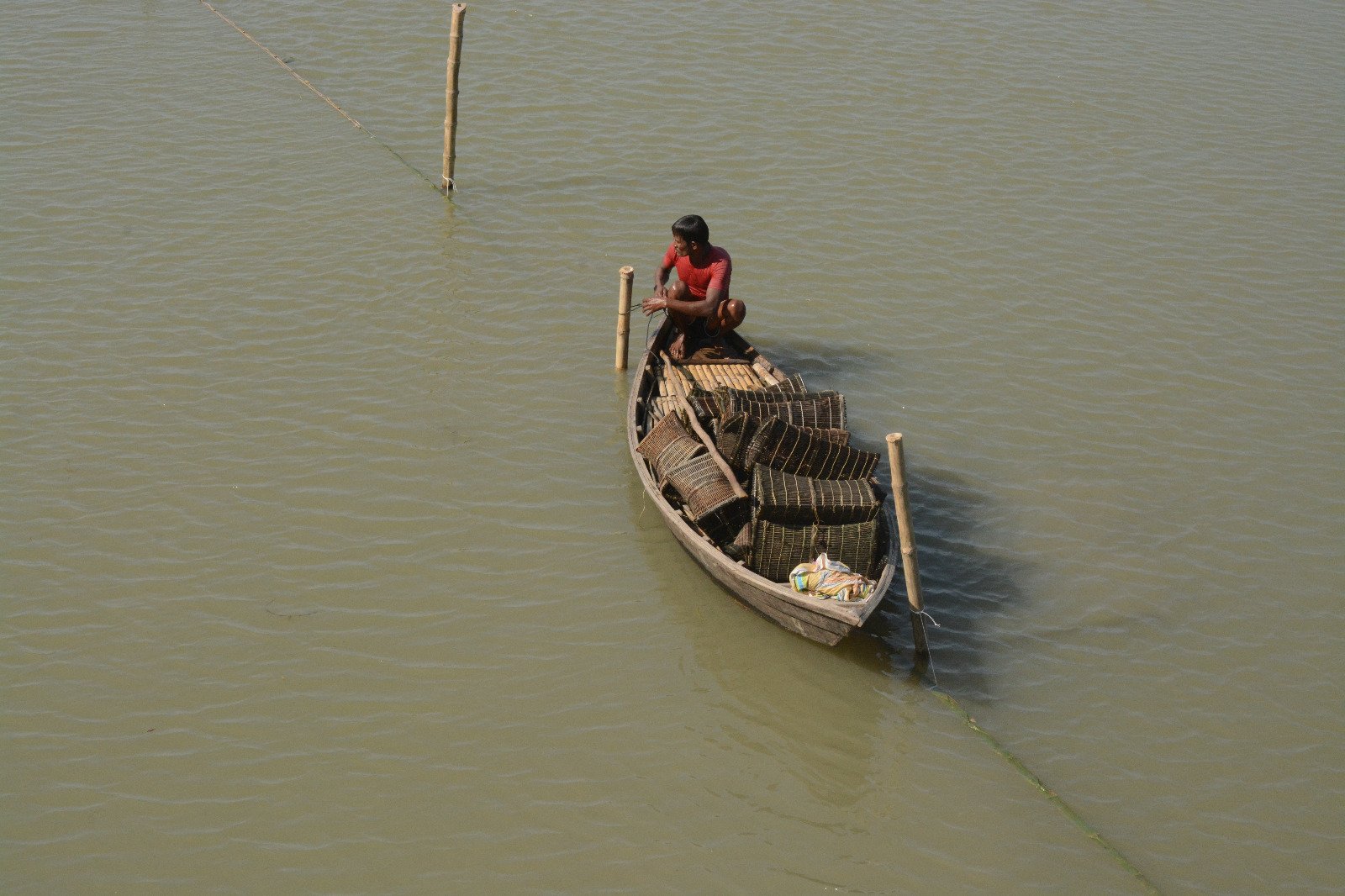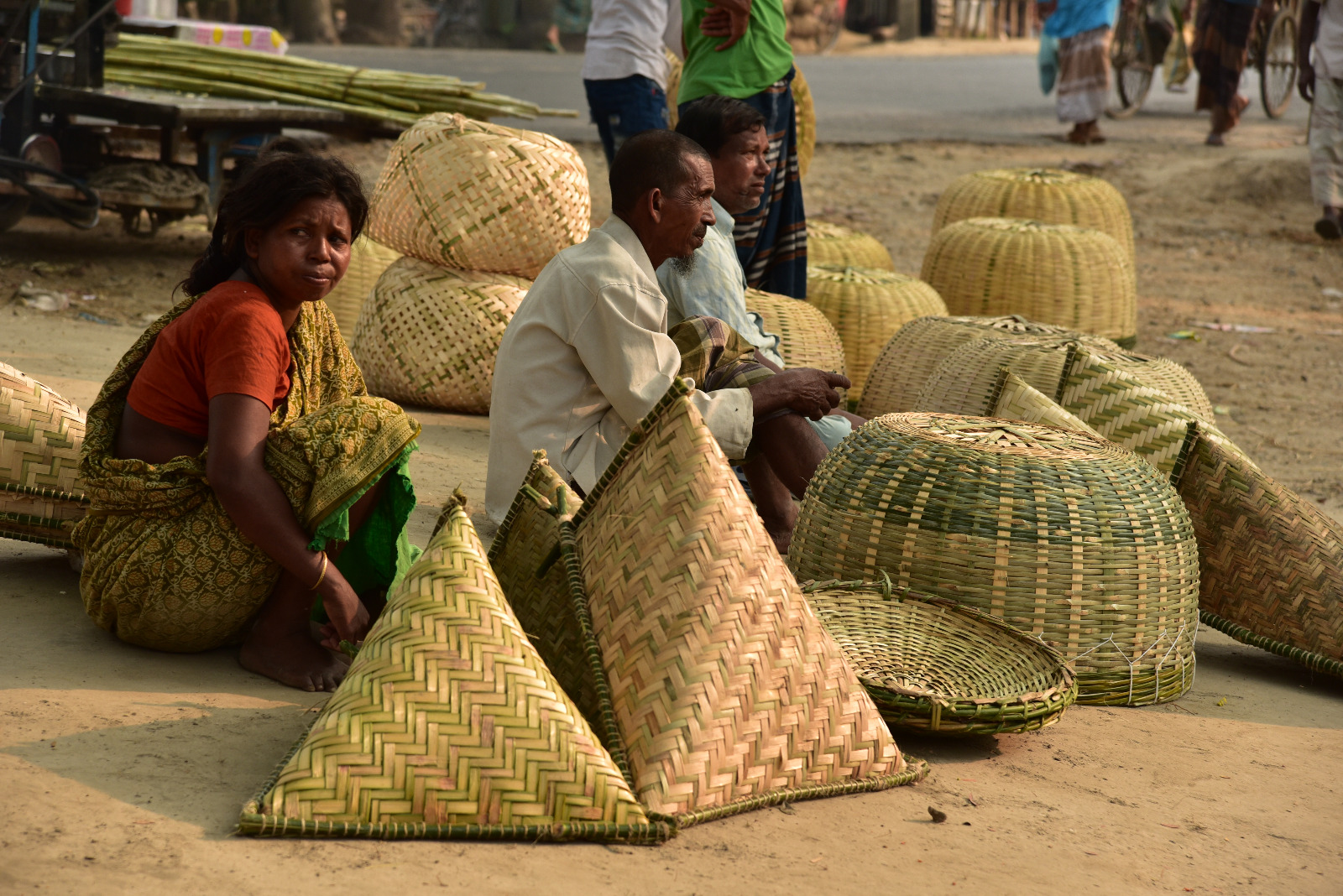Gopalpur Village
Where Wood Becomes Wellness – The Timeless Craft of Catechu
Gopalpur, Rajshahi

Tree Collection
Heartwood Extraction
Raw Cutch Production
Local Market Distribution
Situated on the eastern bank of the Padma River in Charghat Upazila, 35 kilometers from Rajshahi city, Gopalpur is affectionately known as Bangladesh’s ‘Catechu Village’. With a legacy shaped by resilience, this small drought-prone community has turned adversity into an opportunity through the traditional craft of catechu production.
Once introduced by the Bihari community, the practice of extracting catechu—a dark brown resin derived from the heartwood of the Senegalia Catechu tree—has been preserved and passed down through generations. Despite scarce resources and challenging conditions, about 8 to 10 families in the village continue this rare tradition.
Catechu is highly valued for its use in betel leaf consumption and woodworking. The locals, especially women, play a crucial role in processing the heartwood, converting it into raw cutch, charcoal, and firewood. Despite the physically demanding labor, wages remain modest, with men earning around 80 BDT and women 50 BDT per day.
Yet, this humble craft sustains the economy of the village and supports their identity. Traders collect raw materials from roadside and forest trees, deliver them to the village, and transport finished products to distant parts of Bangladesh.
Artisanal Legacy
Traditional catechu processing passed down from Bihari predecessors
Gendered Workforce
Women play a pivotal role in processing and packaging
Local Market Economy
Products traded through the Charghat Bazaar hub
Income Despite Adversity
Sustains livelihoods in one of Bangladesh’s poorest regions
Village Life in Motion
Cultural
Heritage & Traditions
In Gopalpur, the art of catechu making is more than a livelihood—it’s a tradition that binds generations. With the lack of modern technology or commercial plantations, the villagers rely on traditional knowledge, forest foraging, and manual processing techniques to carry on this century-old practice.
Amid economic hardship, this craft empowers women and ensures the village remains self-reliant. Their commitment to sustaining this industry showcases how a marginalized community can protect its heritage while continuing to contribute to the local economy.
Today, as the demand for catechu grows both locally and globally, Gopalpur stands as a quiet guardian of Bangladesh’s forgotten crafts, urgently needing attention from research institutions to unlock its full potential.


Have A Question ? Start
Consultation Now
community. Join our mission to create environmental and economic change.
